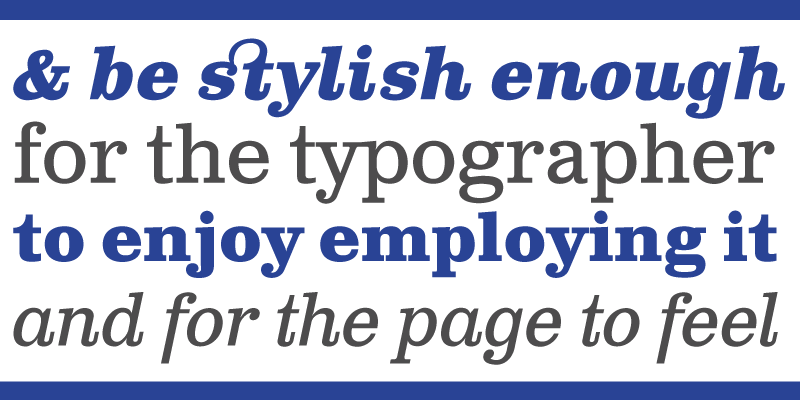Last Updated on October 9, 2023
This slab-serif was released in 1845 by Thorowgood and Co. (some sources directed this to Thorowgood and Besley) of London. The original typeface was credited to Robert Besley, and the first engravings were made by punchcutter Benjamin Fox.
How Clarendon Came To Be
During this part of the 19th Century, the Industrial Revolution was at its second stage, and printing was more and more used for commercial applications. Besley, who was working for the Fann Street Foundry, was looking for a solution to the lack of means to highlight particular points in editorial texts and signage.
Italics was the go-to method at that time, and the typographer wanted to create a bold typeface that pulled out parts of texts without losing its cohesion with the rest of the piece. This led to the creation of Clarendon: the first related bold typeface. Besley went as far as attempting to patent the typeface in 1842, making his creation the first registered font in history.
Clarendon Characteristics
Clarendon’s bold and solid structure is a distinct trait of the modern serif typefaces popular during the 19th Century. The design features bracketed serifs that become larger on the letter’s main stroke. Vertical stresses, large X-height, and short ascenders and descenders also make up the typeface and its variants’ characteristics. This is normally described as ‘a cross between the roman and slab serif models’.
Classic Clarendon Font

The slab serif achieved commercial success. This led to the creation of a typeface family that shared Clarendon’s characteristics in as early as three years after the typeface was patented. In fact, you can probably recall it from old ‘wanted’ posters. Today, the font is mainly used in business, such as in calling cards and corporate websites.
Purchase Clarendon from My Fonts, or download it from Adobe Fonts. Fonts Geek has free variants of the type family as well.

